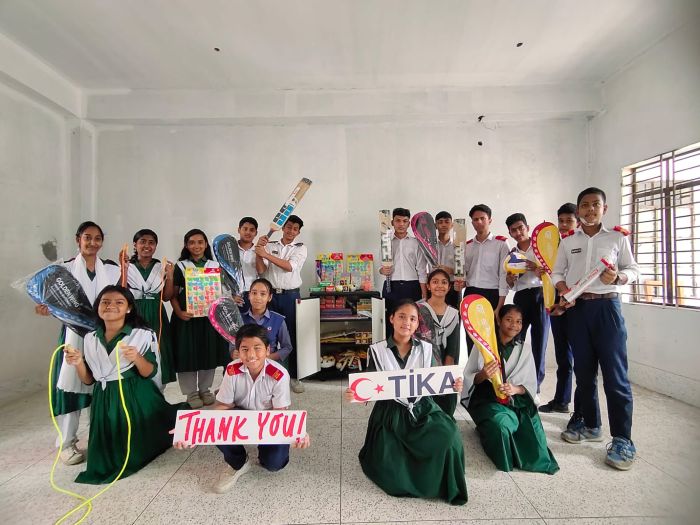News Flash
News Flash
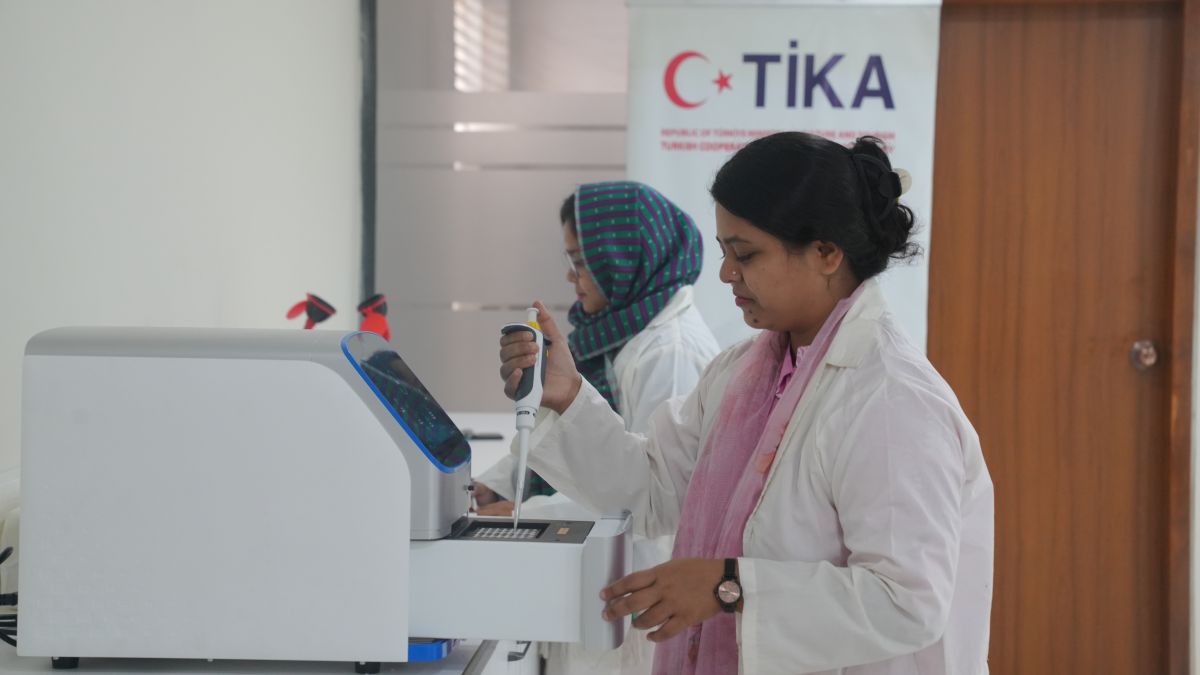
DHAKA, Jan 7, 2025 (BSS) – The Turkish Cooperation and Coordination Agency (TIKA), Turkiye's state-run aid organization, played a transformative role in Bangladesh's development throughout 2024.
“The year 2024 is an unpredictable and extraordinary for Bangladesh. It began with an election process, followed by student movements protesting quotas in early summer that led to a revolution, and culminated with a devastating flood in August that affected over five million people,” TIKA’s Dhaka Program Coordinator Sevki Mert Baris told BSS today.
Against this backdrop, he said, TIKA worked to address urgent needs while prioritizing sustainable development through diverse, demand-driven projects. Baris said, by implementing impactful projects across education, healthcare, agriculture, and humanitarian aid, TIKA not only bolstered socio-economic progress but also deepened bilateral ties between Turkiye and Bangladesh.
Advancing Education for Future Generations:
In education, TIKA focused on expanding accessibility and upgrading infrastructure while it renovated Ataturk Model High School in Feni. The refurbished institution, which was established in 1939 and named after Turkiye’s founder Mustafa Kemal Ataturk, now accommodates 1,000 students with modern facilities.
In Cox’s Bazar, TIKA prioritized skill-building for the burgeoning tourism industry by establishing a training kitchen and a common area at Cox’s Bazar City College. This initiative aims to prepare over 12,000 students for employment opportunities in the growing sector. Additionally, the agency introduced school buses to improve access to education in remote areas.
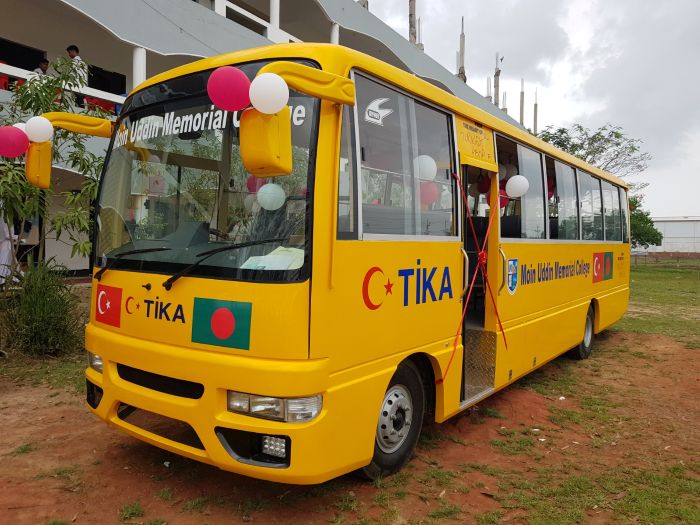
Strengthening Healthcare Systems:
To contribute to Bangladesh’s healthcare sector, the agency upgraded the physiotherapy department at Dhaka Shishu (Children’s) Hospital, which treats
approximately 1,500 children daily. Two new Class B health centres were opened in Shariatpur and Rangamati, while mobile clinics deployed in flood-hit areas of Feni and Noakhali provided treatment to 10,000 people, including children, women, and the elderly.
TIKA also partnered with the Bangladesh Institute of Special Education and Guidance (BISEG) to deliver specialized care to nearly 2,000 Rohingya patients in Cox’s Bazar, focusing on ENT, internal medicine, and dental services.
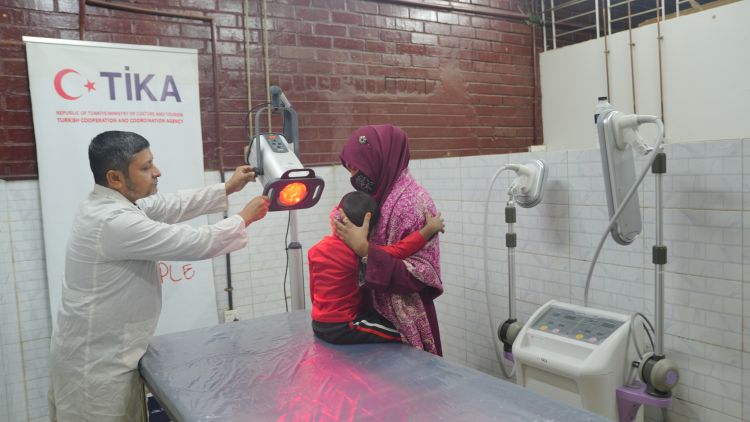
Promoting Climate-Resilient Agriculture:
In the climate-vulnerable Koyra region of Khulna, TIKA trained 20 women and youth in smart farming techniques such as sack gardening and vertical farming. The second phase of its "Climate-Friendly Agricultural Techniques Project" trained 80 women farmers, transforming the area into a model village for sustainable agriculture.
Besides, TIKA established a molecular biology laboratory at the Bangladesh Cotton Development Board to enhance research capabilities, reflecting its commitment to innovation in agriculture.
Humanitarian Aid in Times of Crisis:
During the severe flooding in August, TIKA distributed essential relief items— including food, water purification tablets, and hygiene materials—to 3,000 families in Feni, Laksmipur, and Noakhali while the agency’s mobile clinics provided critical medical care to flood victims.
During Ramadan, TIKA extended support to marginalized communities by distributing 2,500 food packages to low-income families, orphans, and Rohingyas. It also served daily hot Iftar meals to 1,000 families in Cox’s Bazar refugee camps.
In Pabna, TIKA provided 50 sewing machines and 50 dairy cows to 100 rural women, empowering them to generate income and improve their livelihoods.
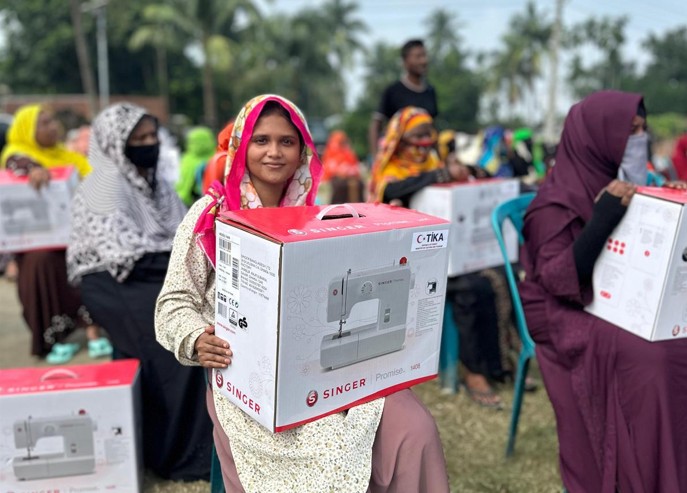
Support to Rohingyas:
TIKA’s initiatives for Rohingyas in Cox’s Bazar included restoring a fire-damaged playground in Sector 5 of the camp and establishing a Multi-Purpose Education and Cultural Center in Camp-16.
The centre offers vocational training in bamboo work, woodwork, electronics, and sewing, alongside a library aimed at preserving cultural heritage.
In an effort to boost morale, TIKA supported the inaugural Arakan Football League, which drew 20,000 spectators and fostered community bonds among the refugee population.
Development in Bhasan Char:
On Bhasan Char Island, TIKA introduced a sea ambulance, the first time in Bangladesh, to ensure faster access to emergency healthcare for the 34,000 Rohingya residents relocated there.
Key projects included the construction of a cattle barn, poultry farm, and vegetable garden to improve food security, as well as a playground for children on the island. Safety measures, such as fencing around ponds, were also implemented to prevent child fatalities in Bhasan Char.
Deepening Turkiye-Bangladesh Relations:
TIKA, with offices in over 60 countries, has been operating in Bangladesh since 2014. Its multifaceted projects reflect Turkiye’s commitment to fostering sustainable development and strengthening its partnership with Bangladesh, said the TIKA’s officials here. The agency’s work underscores the enduring friendship between the two nations and their shared vision for a brighter future, they added.
